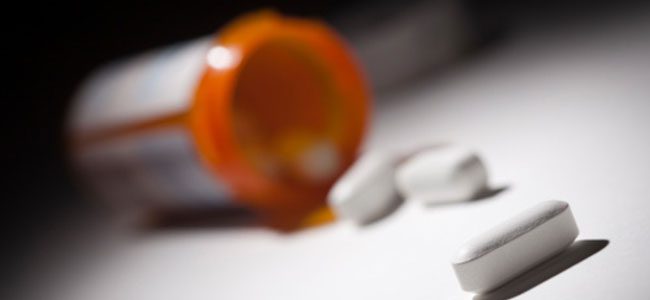Suboxone Clinic in Spokane
Opioid Use Disorder (OUD) is a problematic pattern of regular opioid use, leading to complications in everyday life. About 2 million people are afflicted with OUD in the U.S. at any given time. Diagnosing OUD requires a thorough evaluation, including asking questions from family members regarding signs of an opioid problem in their loved one's day-to-day activities at home.
The Spine Team Pain Center now offers Suboxone in Spokane and buprenorphine (subs) medication treatment, and is committed to helping patients with the prevention, diagnosis, evaluation, and treatment of pain and drug addiction through our suboxone clinic. Our trained & certified providers are acquainted with all the latest treatments for those addicted to pain medications and illicit drugs such as street drugs.
Below are some of the common questions about Suboxone and its use in addiction treatment.

Understanding the Relationship between Suboxone Overdose and Reduced Opioid Inhal
Suboxone should ONLY be used by someone who has experienced drug addiction. A person with a high tolerance may already have a tolerance level for Suboxone. Tolerance exists to experience an increased sensation or feel in euphoria or some ways intoxicated. Patients with lower opioid tolerance are at a greater risk of drug overdose. Abusing medications can lead to addiction and even low to no tolerance can increase the potentially dangerous outcomes. Low tolerance can lead to overdoses and other severe complications since the body isn’t able to utilize high-dose drugs in the system. People who once felt high from snorting two pills may now overdose from taking even the tiniest bit of the substance.
What is Opioid Use Disorder (OUD)?
Opioid Use Disorder (OUD) is a medical condition resulting from long-term opioid use. It triggers strong cravings, increased tolerance, and withdrawal symptoms when the drug is stopped. This disorder can cause severe distress and disrupt daily life. Globally, over 16 million people struggle with OUD. In the U.S., it affects about 2.1 million individuals. Risk factors include untreated mental health issues, childhood trauma, or a family history of substance abuse.
The Role of Family and Diagnosis
Family members play a crucial role in supporting patients during addiction treatment. They often offer encouragement, accountability, and emotional support throughout recovery programs. A strong support system can keep new patients motivated while undergoing medication-assisted treatment like Suboxone. Proper diagnosis is key to building an effective treatment plan. Skilled specialists evaluate medical history, current symptoms, and other relevant factors before suggesting personalized treatments. This approach ensures every patient receives evidence-based care designed to meet their unique needs for the best possible outcome.
Suboxone (Buprenorphine and Naloxone)
Suboxone (buprenorphine/naloxone) is a brand prescription drug. The drug is used for relieving dependence on Opioid drugs. It arrives as an oral film placed beneath your tongue (sublingual) or between its gums and cheeks (buccal).
Studies have shown this treatment helps reduce opioid addiction and maintain recovery over a 24-week period.
How Does Suboxone Work?
Buprenorphine is a partial antidiarrhoceptive. It acts like oxycodone, heroin, or methadone in low to moderate doses. Suboxone is used to alleviate withdrawal symptoms from opioids, Naloxone, drug block, and agonists’ responses in the brain. This acts to counteract your usual feeling of Buprenorphine. These two ingredients work coherently when given with doses that slowly decrease over time. Ultimately, this helps facilitate recovery towards a more normal life free of deep suffering or emotional pain.
Buprenorphine, a partial opioid agonist, mimics opioids like heroin, but with limited euphoric effects, creating a "ceiling effect." Naloxone blocks opioid receptors, reducing the risk of misuse. Together, they reduce cravings and ease withdrawal symptoms, allowing patients to focus on rebuilding their life and avoiding relapse.
How Long Does Suboxone Last To Treat Opiate Withdrawal Pain?
Suboxone mimics some of the effects of opiates and reduces the brain's need for real opiate drugs. All the drugs are relatively safe and remain well for a short period of time with no side effects. Approximately one-third of users will be satiated. A person's weight and metabolic history can reduce Suboxone's effect. According to your medical history, you need to work and understand the best medication to achieve optimal resorption. Suboxone is safe and effective, with its effects lasting 3 days to 5 days post-injection. This substance replicates the effects of opiate substances, encouraging abstinence.
Can You Overdose On Buprenorphine?
When taken as directed, the risk of overdose from buprenorphine is low due to its ceiling effect. However, misuse—such as injecting the drug or combining it with sedatives or alcohol—can still lead to overdose or addiction. Patients with low tolerance are especially vulnerable.
Suboxone has no euphoric effect when prescribed. However, people that take too many prescription drugs may become too heavy and get high. Sometimes, people even inject a drug that allows them to bypass Time Release. In that case, Buprenorphine can reduce the risk of overdose in the treatment. However, like all other drugs that cause abuse, it may increase the risk for misuse or addiction. People with poor tolerance will experience euphoria after taking only a small amount of the drug. Even those who don’t prefer swallowing, may feel high.
Understanding the Ceiling Effect
Suboxone alone has a "ceiling effect', which means that even though it induces a high at certain dosages, it does so only to a certain degree. Many people with drug overdose have a high tolerance to opioids, but this hasn't discouraged others. Although some individuals with tolerance may attempt to take more Suboxones to achieve a high, they reach the ceiling effect and cannot. Those who can’t tolerate opioids may overdose without hitting their tolerance limit. It's important to remember that this medicine is still in use even if the person overdoses.
Our providers work diligently not to let addiction turn into a crisis in your family when it can be easily taken care of at the onset. Our trustworthy experts are here to provide resources that will ultimately reduce any risk factors for an addiction that may affect your loved ones or encourage them to take preventative actions every day, reducing their chances of developing an addiction.
On the first visit, our medical specialist will ask the patient about their medical and addiction history. Together, the patient and provider create a treatment plan, including appropriate medications for the patient.
If you want to learn more about treatment, contact us today for a consultation.
Frequently Asked Questions (FAQs) about Suboxone Clinic in Spokane
1. What is a Suboxone Clinic, and how can it help me?
A suboxone clinic in Spokane provides specialized care for individuals struggling with opioid addiction. Using Suboxone, a combination of buprenorphine and naloxone, the clinic supports patients through withdrawal symptoms and helps reduce cravings for opioids, including heroin and oxycodone.
2. How does Medication-Assisted Treatment (MAT) work?
Medication assisted treatment combines FDA-approved medication with behavioral therapies to address addiction. MAT has been proven to reduce the risk of overdose and is one of the most effective approaches to long-term recovery.
3. Who qualifies for Suboxone treatment?
Patients diagnosed with opioid use disorder and a history of addiction may qualify for suboxone treatment. Your medical history and current medication use will be reviewed to create a treatment plan tailored to your needs.
4. Can I receive treatment online?
Yes! The clinic offers online suboxone treatment with online suboxone doctors for those unable to attend in person visits. This option ensures you can access treatment wherever you are in Spokane.
5. What sets your clinic apart from others?
Our suboxone clinic Spokane is staffed by experienced specialists who provide compassionate care and evidence based care. We focus on personalized treatment and helping patients achieve sobriety through ongoing support and a structured recovery program.
6. Do you accept Medicaid or offer affordable treatment?
We accept Medicaid and aim to keep the cost manageable for new patients. Our team is committed to providing access to high-quality treatment and medical care, helping you reclaim your life from addiction to other drugs like methadone.

